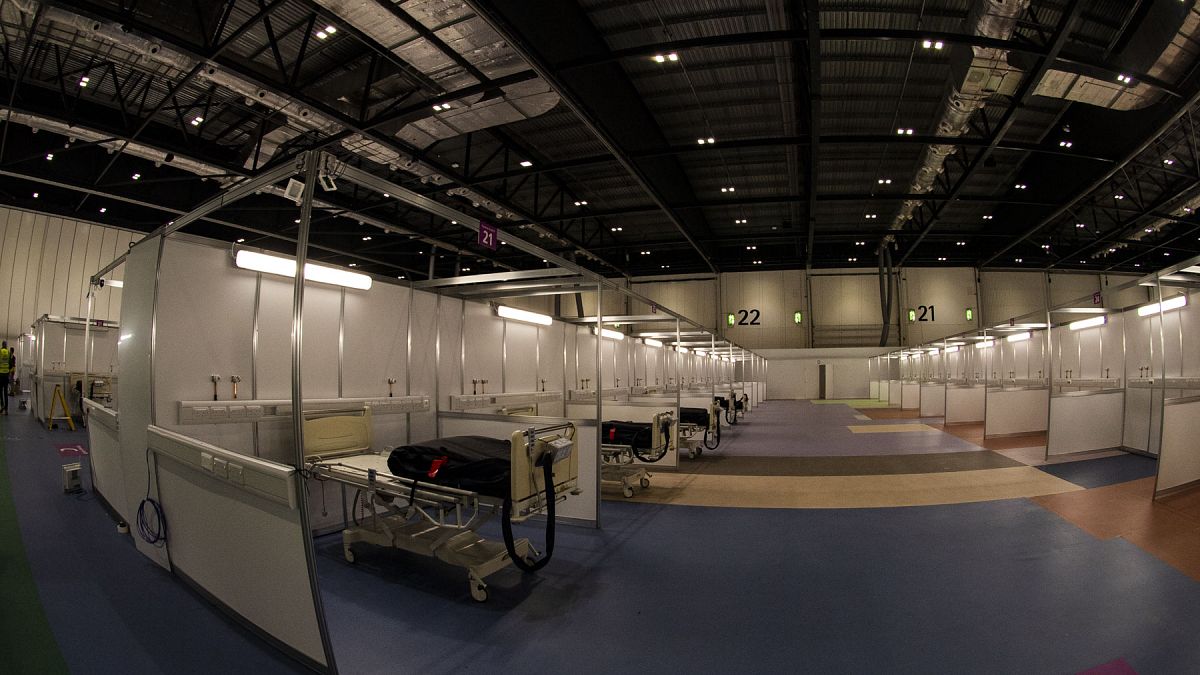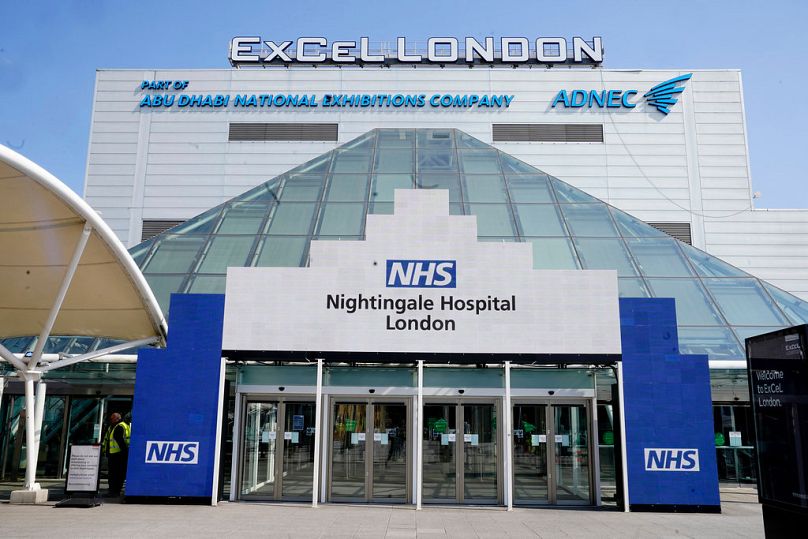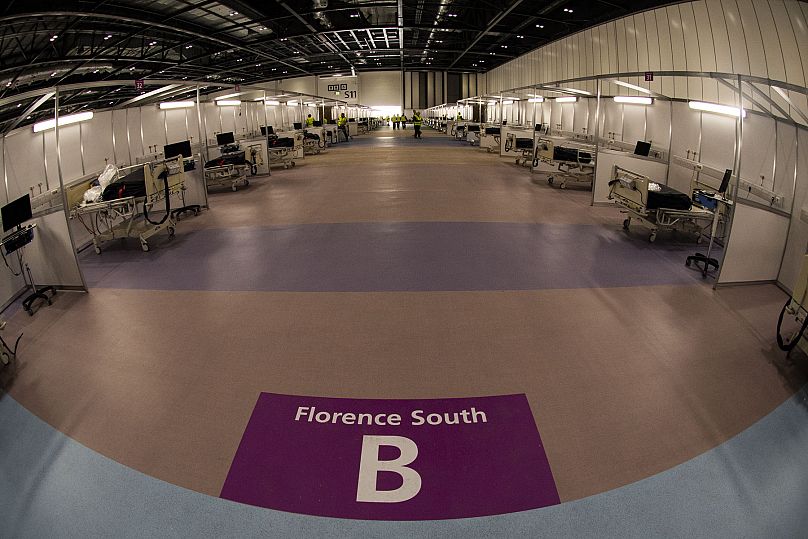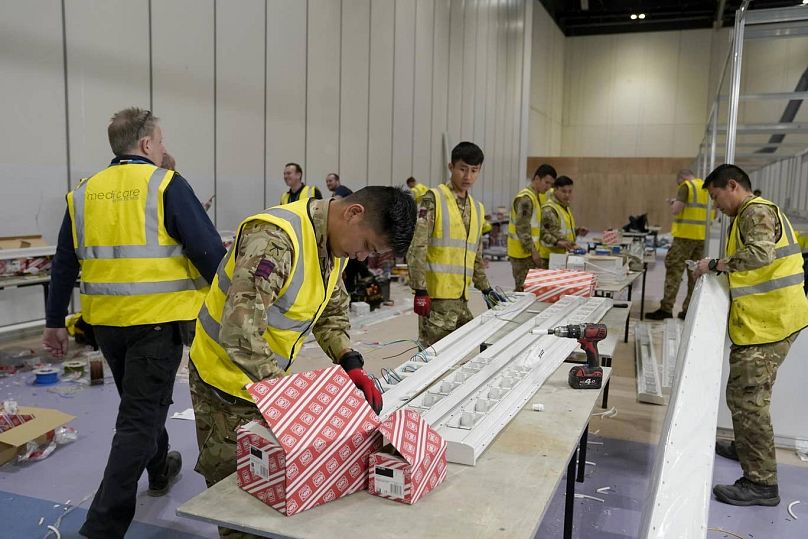The beds have been set up, but some worry there won't be enough staff or protective equipment to man the new London hospital.
Prince Charles officially opened the UK’s first temporary hospital set up to treat patients with COVID-19 in London.
The Prince of Wales spoke via video link as he self-isolates after contracting the virus himself - and thanked everyone involved for their effort in making NHS Nightingale possible.
The hospital opened in London on Friday morning. There will be others like it, including at sites in Manchester and Birmingham.
NHS Nightingale hospital, established in under a fortnight, has been built in the ExCeL Centre, a space normally used for exhibitions. There are five hundred intensive care unit beds there to start with, equipped with ventilators.
NHS England said it has the capacity for up to around 4,000 beds, should they be needed. It is being staffed mainly by NHS doctors, nurses and other healthcare professionals from across the UK.
A number of military medics are on hand too, as well as volunteers, including airline staff from easyJet and Virgin Atlantic, as much of their industry remains at a standstill.
NHS England said they will work alongside NHS clinicians, changing beds, and doing other non-clinical tasks, as well as helping doctors and nurses working on the wards.
Dr Claudia Paoloni is a consultant anaesthetist and the president of HCSA - the Hospital Doctors’ Union, and told Euronews how there is still a problem on the ground with Personal Protective Equipment (PPE) for healthcare workers.
“They are having to take their own measures in their own hands to make their own pieces of kit, which cannot be a good idea because of the regulations needed to make sure that they are safe to use. So the PPE for all these extra beds, I wonder where that’s coming from. I hope they have a long-term strategy on how to keep the supply of the PPE kit going for all the places,” she said.
The British government has said more equipment is on the way, including 170 million masks. Despite assurances though, there are still life-threatening shortages.
Lisa Elliott, the London regional director for the Royal College of Nursing, reiterated how more action is needed.
“This cannot continue, these nurses are putting themselves at risk, their families at risk, and their patients at risk. Making sure nurses have the right access to PPE is essential.
“We need action, we need equipment and we need it now,” she told Euronews.
Ventilators are another issue, manufacturers have been helping to produce more, although there are questions too over whether there is enough trained staff to operate them at NHS Nightingale.
Another 569 people have died in the UK, as of Thursday 2 April, after testing positive for coronavirus, with the total number of deaths now at 2,921, according to the Department of Health.
Dr Allan McGlellan, medical director of the NHS Nightingale, said, “The NHS faces the greatest challenge in its history but by setting up this new site we can work with the hardest hit part of the country, to support staff in the capital’s other hospitals and make sure people who need intensive care can get it."
“We are ready today to do what’s required of us, but my hope is that we are not needed, because if we all take sensible steps to reduce transmission of this virus then fewer people will need care and the pressure on my hard-working colleagues will reduce.”



